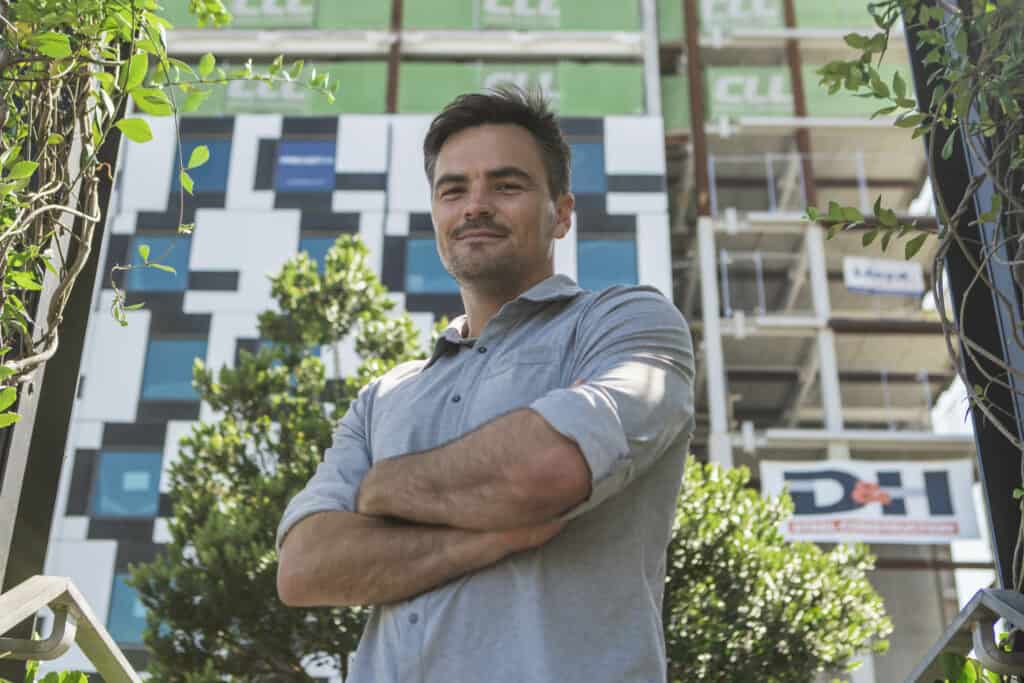The Real Estate Institute of Australia’s first Commercial Real Estate Sustainability Report has revealed the challenges the $1 trillion sector is likely to face as Australia embarks on its transition to a 2050 net zero economy.
REIA president Hayden Groves said sustainability had emerged as a central pillar of the Australian commercial property sector. It would fundamentally alter the way businesses designed, constructed, operated and invested in real estate as it shaped the preferences of tenants and investors.
“This transformation is not merely a response to changing consumer preferences or regulatory pressures,” he said. “Rather, it reflects a broader recognition of the industry’s profound impact on the environment, society and the global economy.
“REIA’s Commercial Real Estate Sustainability Report 2023 explores ways in which the commercial property industry is changing, and will continue to change, as our economy and Australia’s consumer base gears up to decarbonise.”
Among central considerations will be the mid and long-term changes commercial property owners will need to make to meet both consumer demand and Australian emission targets.
Created in partnership with commercial proptech Re-Leased, the report is part of the REIA’s Commercial Agency Engagement Program (Project CRE) which was launched in 2022 and designed to consult with leading commercial practitioners and agencies through research, 1:1 engagement, digital forums and live events.
Re-Leased CEO Tom Wallace said the Australian commercial real estate landscape was at a “pivotal moment”.
“We take great pride in our alliance with the Real Estate Institute of Australia, sharing a common commitment to enriching the commercial real estate sector through Project CRE,” he stated in the sustainability report.
“At Re-Leased, we are passionate about shaping the future of commercial real estate to achieve better outcomes for people, properties and the planet.
“The importance of sustainability and effective management of the built environment has never been greater. This sustainability report represents a significant milestone, providing valuable insights into the challenges and strategies in sustainable commercial real estate for owners, tenants and practitioners alike.”
Mr Groves said that getting the right information and expertise for the industry was critical to achieving success through the net-zero transition.
“The report takes a particular focus on the main implementation challenges our commercial sector – including our tenants and property owners – will face,” he said.
Among the considerations were three mid-term strategies for adapting and improving the industry: assessing the role of embodied carbon for existing commercial stock and new developments; using carbon offsets and, adopting sustainable cleaning standards.
The report also outlined the role of commercial property in meeting the Australian Government’s Scope 3 emissions targets which includes: supply chain emissions; employee commuting; business travel; use of sold products and, end-of-life treatment of products.
Mr Groves said that an understanding of these targets – and how they would change commercial property operations – was a good place to start industry sustainability discussions.
“Scope 3 emissions targets refer to goals and objectives set by organisations to reduce or mitigate their indirect greenhouse gas emissions,” he said.
Many organisations are now focusing on Scope 3 reductions, which has in turn put the spotlight on the commercial properties they occupy. Mr Groves said this would be a key driver for selecting office space in the future.
“While there are a multitude of reasons that tenants prefer prime grade office space over secondary grades, one of the major drawcards of better-quality space is the ability of tenants to reduce their emissions through their office space occupancy,” he said.
“Addressing embodied carbon will likely become a more integral part of the real estate and construction industries.”
The REIA Re-Leased report also identified 12 key opportunities to help investors improve commercial assets during the transition to net zero.
- Energy Efficiency Improvements
- Renewable Energy Integration
- Building Automation and Controls
- Energy-Efficient Appliances and Equipment
- Water Conservation
- Green Building Certifications
- Waste Management and Recycling
- Indoor Air Quality Improvement
- Tenant Engagement and Education
- Green Roof and Landscaping
- Carbon Offsetting and Mitigation
- Regular Monitoring and Reporting.
The report findings will be discussed in a webinar, Sustainability in Australian Commercial Real Estate, hosted by the REIA and Re-Leased on Tuesday, November 28 at 12pm AEDT.
Discussing challenges and strategies to assist occupiers, owners and investors, the webinar will feature Tom Wallace, along with Anneke Thompson – managing director of REIA research partner Clio Research, as guest speakers.



